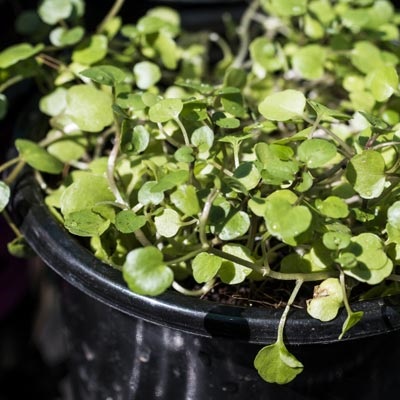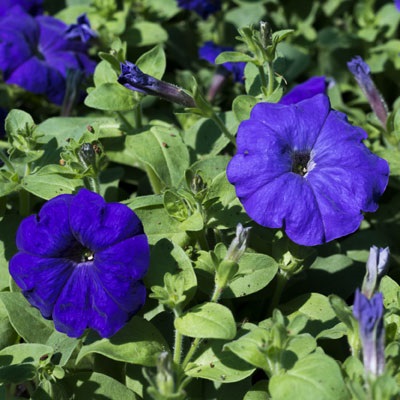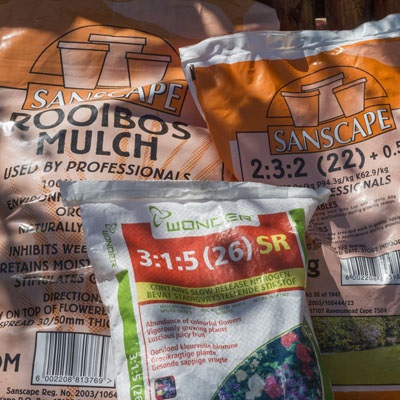2015 has arrived and chances are, you have neglected your garden.
Here are some tips from Stodels on what you need to be doing in your garden right now as well as some gardening resolutions.
Remember February is the hottest month of the year so prepare your garden now for the heat and evaporation.
The answer is of course, mulch, mulch, mulch. Ask the horticulturists at your local nursery to help you choose the best.
Plant and sow :
It’s the ideal time to plant the following herbs in containers: basil, chives, dill, nasturtiums, parsley and watercress.
Keep the soil moist until the first shoots appear then pinch out new growth on the seedlings to encourage them to become compact and bushy.
You can also look at planting heat-tolerant annuals like alyssum, celosia, sunflowers, marigolds, petunias, portulaca, red salvias and zinnias.

And if you have a veggie garden, or want to begin one, then now’s the time to plant artichokes, beans, beetroot, broccoli, cabbage, carrots, cauliflower, leeks, lettuce, potatoes, pumpkin, spinach, squash and turnips.
Irises are always beautiful and if you are planning on planting them then make sure your soil is rich and add some superphosphate. The rhizomes should be half exposed to the sun and the soil should be kept moist.
Feed :
Feed lemon trees with 3:1:5 or 8:1:5 and water well. Surround the trees with a thick layer of organic mulch. Grass and plant clippings (from pruning) are perfect to use as mulch in your garden beds.
Make sure you mulch your Azaleas and Camelias and water three times a week plus fertilise Fuschias with a high potassium fertiliser like 3:1:5.
All images: Supplied
Tidy up :
Lightly prune roses to encourage the development of new flowers. Pull up any sucker shoots (light green, thornless shoots) growing from the base of bushes.
Also remove some of the smaller flower heads on dahlias plants. This will encourage the development of dinner plate-sized blooms.
Cut back your 'Christmas flowers' – hydrangeas - to a strong double bud. Feed with general fertiliser and water well.
Stake tall-growing perennials and trees to protect them against the strong south easterly winds.
Tackle those weeds :
Pull up any weeds before they go to seed, causing more problems for next year. Spray driveways and paving with a non-selective weed killer like Roundup.
Remember, we are a water scarce country and weeds steal valuable water and nutrients from your plants.
Gardening care for 2015:
Create new, good habits and enjoy your garden to the full. Ready? Here we go!
- Share your garden produce (fruits, veggies, flowers, cuttings, etc.) and discoveries with your neighbours. Chances are good that what grows well in your garden will grow well in theirs (and vice versa)
- Save water by watering in the early morning or late evening and mulch garden beds of plants that need frequent watering, such as roses and fuchsias
-Find and prepare a place for a new plant before you buy it
-Add more indigenous plants – they are water wise and provide colour and texture to your garden
-Pick flowers from your garden often and fill your home with arrangements from your own garden
-Involve your children in the garden. Allow them to plant their own veggie seedlings or flowers
Herb of the month: chives
Chives are the smallest edible member of the onion family. Besides their many culinary uses, they make very attractive garden plants, bearing masses of mauve flowers and attractive green stems.
They are very easy to grow, and the more stems you harvest, the more the plant will produce.
Planting tips:
- Choose an area of your garden which receives full sun and where the soil drains well
- Dig in plenty of compost into the soil and either plant chive seedlings into the soil, or sow the seeds directly into your garden beds
- Keep the soil moist at all times until the plants are well established, and feed your plants every 4-6 weeks with liquid fertilizer
- Overcrowded clumps can be divided into three sections (discard the middle piece) and replanted in spring or early summer
- Use a sharp knife or kitchen scissors to harvest the stems and flowers. Pulling on the stems can damage the plant.
Uses:
- Fresh chives are wonderful in salads, dips, sandwich fillings and as a garnish. The flowers are also edible and can be used for all the same purposes
- Chives are a natural insect repellent (but they attract beneficial insects, like bees), making them an ideal garden companion plant
- Pot up chive plants in small attractive pots and use them as table decorations for outdoor entertaining
Follow Women24 on Twitter and like us on Facebook.




 Publications
Publications
 Partners
Partners










